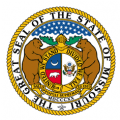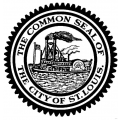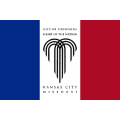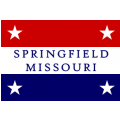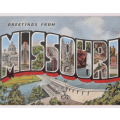For our 2024 rankings of LPN programs, the research team at Nursing Schools Almanac compiled an extensive database of student performance on the National Council Licensure Examination for Practical Nurses (NCLEX-PN). Aspiring practical nurses in the United States must pass this examination before they may commence practice. Thus, student performance on the NCLEX-PN exam provides an excellent benchmark for comparing the relative quality of practical nursing programs.
Missouri
We've organized a comprehensive list of Missouri nursing schools. Below you'll find information on specific nursing programs such as LPN certificates and ADN, BSN, and MSN degrees. You'll also find a profile of nursing education and careers in each major Missouri city.
Missouri nursing programs and careers
St. Louis is Missouri’s second-largest city, and it is home to some of the state’s best and largest hospitals. These include Barnes-Jewish Hospital at Washington University, which houses 1,130 doctors; Missouri Baptist Medical Center, home to 690 doctors; and St. Luke’s Des Peres Hospital, with 363 residing doctors. The support staff at these healthcare centers is immense, and it includes many of the state’s top nurses. In order to join this community, aspiring nurses must obtain the proper education, training, and credentials. Fortunately, St.
With a wide variety of local schools and training programs, the barriers to entry are very low in Kansas City’s nursing profession. Local nursing students can pursue one of four critical roles: certified nursing assistant (CNA), licensed practical nurse (LPN), registered nurse (RN), or advanced practice registered nurse (APRN). Roughly 15 nursing schools serve the metropolitan area, with eight campuses located in Kansas City proper.
Nursing is one of Missouri’s largest healthcare professions. The state is home to more than 128,000 nurses working in a broad range of roles. Approximately 2,400 of these nursing professionals work in the Saint Joseph metropolitan area. This city of 76,000 residents has approximately 1,260 registered nurses (RNs), 350 licensed practical nurses (LPNs), and 800 certified nursing assistants (CNAs).
The city of Joplin, Missouri, is home to 220 nurse practitioners (NPs), 2,080 registered nurses (RNs), 450 licensed practical nurses (LPNs), and 820 certified nursing assistants (CNAs). Many nurses in the metropolitan area earned their degree or certificate at a nearby college or university. One of the best local options is Missouri Southern State University. The school’s bachelor of science in nursing (BSN) students recently posted a 100% first-time pass rate on the National Council Licensure Examination for Registered Nurses (NCLEX-RN).
The Springfield, Missouri, metropolitan area is home to 10,000 licensed nursing professionals. Local nurses typically serve in one of three roles: certified nursing assistant (CNA), licensed practical nurse (LPN), or registered nurse (RN). Earn role carries a unique set of training and examination requirements.
Certified nursing assistant
Registered nurses (RNs) can use graduate study to hone their skills in a specialized field of practice. Missouri has at least 15 colleges and universities that offer a master of science in nursing (MSN) degree program. This course of study prepares candidates for advanced positions in nursing administration, nursing education, family practice nursing, and numerous other specializations.
Overview of MSN programs
For our 2024 rankings of prelicensure BSN programs, the research team at Nursing Schools Almanac compiled an extensive database of student performance on the National Council Licensure Examination for Registered Nurses (NCLEX-RN). Aspiring registered nurses in the United States must pass this examination before they may commence practice. Thus, student performance on the NCLEX-RN exam provides an excellent benchmark for comparing the relative quality of bachelor’s degree programs.
For our 2024 rankings of ADN programs, the research team at Nursing Schools Almanac compiled an extensive database of student performance on the National Council Licensure Examination for Registered Nurses (NCLEX-RN). Aspiring registered nurses in the United States must pass this examination before they may commence practice. Thus, student performance on the NCLEX-RN exam provides an excellent benchmark for comparing the relative quality of associate’s degree programs.
For our 2024 rankings of LPN programs, the research team at Nursing Schools Almanac compiled an extensive database of student performance on the National Council Licensure Examination for Practical Nurses (NCLEX-PN). Aspiring practical nurses in the United States must pass this examination before they may commence practice. Thus, student performance on the NCLEX-PN exam provides an excellent benchmark for comparing the relative quality of practical nursing programs.
Before selecting a nursing school and program, students must carefully evaluate the cost of attendance. Nursing education entails a number of significant expenses, including enrollment and tuition fees, textbooks and equipment, room and board, and other living expenses. A clear budget for these costs is critical, particularly since they can vary dramatically by institution and by specific training program.

